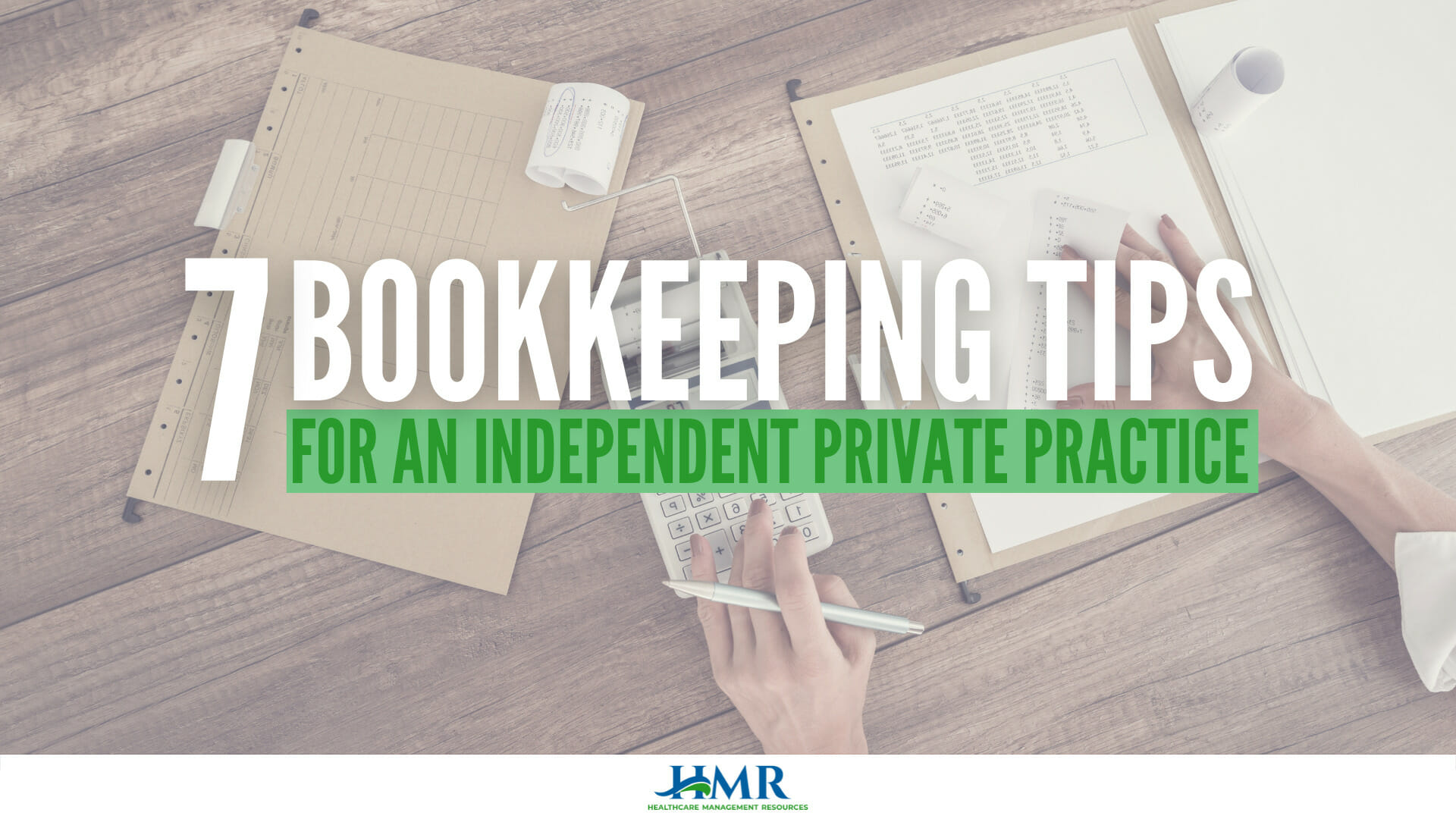7 Bookkeeping Tips For A Private Practice

Bookkeeping for private practice is an essential practice for a business owner. Without it, you won’t know how much money is coming in and going out of your business.
By maintaining your financial records correctly, you’ll never default on any payments, nor will you miss any tax deadlines. But, how do you streamline your bookkeeping processes?
This article will discuss seven bookkeeping practices for private practice—and how they can help you as a clinic owner.
7 Bookkeeping Tips for Your Private Practice
Separate your personal & business expenses
Using one account for all your expenses is comfortable when you start. But a couple of months later, figuring out how much money you spent and where you did becomes difficult.
Separating your bank accounts will give you much-needed clarity on your expenses and make filing taxes much easier. This step is mandatory if you’ve incorporated as an LLC or corporation.
Sign up for an accounting software
The sooner you sign up for accounting software, the better. It helps you monitor where the money is coming from and how it is used.
Not only does it offer storage, security, and accessibility, but it also saves you time by automating bills and documentation.
Consolidate your financial records
Financial records are the proof of transactions—which are essential for filing taxes. Create and review them monthly, and you will be able to identify red flags, if any, in time.
There are several financial documents to take care of, such as:
- Income statement
- Balance sheet
- Receipts
- Invoices and more
Combining all these documents and uploading them onto your accounting software will save you time and money.
Monitor your cash flow regularly
You’re a doctor, but you’re also a business owner. Ensuring enough cash flow in the business is your responsibility. So, learn how to read your financial statements and understand the ground reality of your business.
Here are a few things to look out for:
- High & low-income cycles
- Debt service obligations
- Unnecessary expenses
- Profit & loss
Once you can identify these patterns, you’ll be able to prepare for potential downtime in the future.
Distribute income as needed
As a business, you will have recurring expenses—like software expenses, agency expenses, employee payroll, rent, utilities, and more—which are unavoidable. The best way to prepare for them is by budgeting and distributing income beforehand.
Track these operational expenses and have enough cash flow to fulfill them as it’s essential for your business.
Create a deadline calendar
As a business, you will have different payments to be made at different times during the year—and remembering the exact dates for every payment is difficult. You don’t want to get up one day and realize that you missed the due date. It could result in severe consequences for a business owner, including a late fee.
Create a deadline calendar for tax filing due dates, employee and subcontractor payments, and any additional due bills, which will keep you on track.
Outsource when you can
Truth be told, managing all of these as a small business owner can become overwhelming. If you want to ensure all payments are made on time and using compliant methods, it’s best to outsource it to experts in the space.
Efficient bookkeeping practices go a long way in running a successful business
If you’re looking for a bookkeeper who knows the ins and outs of the healthcare industry, look no further. HMR can help you manage your books—like we’re your internal accounting team.
Do you want to know how? Get in touch with us today.
